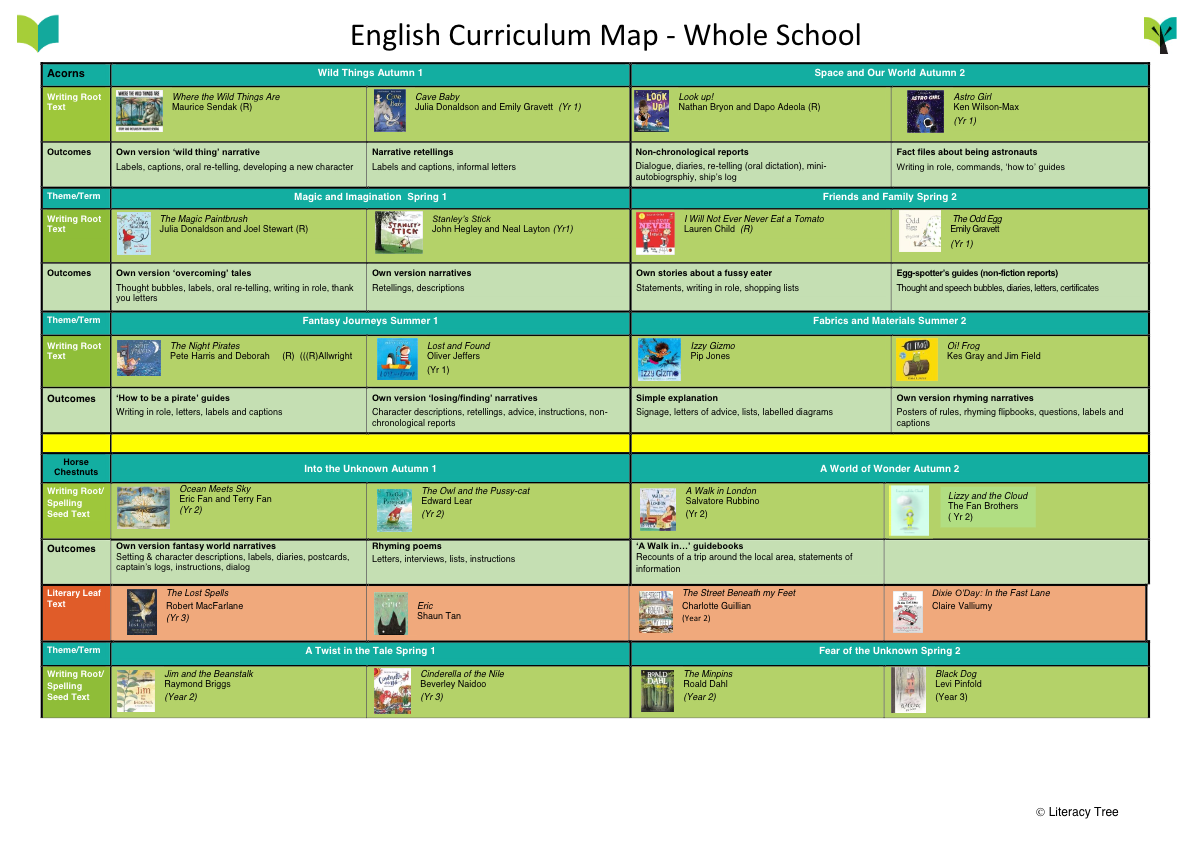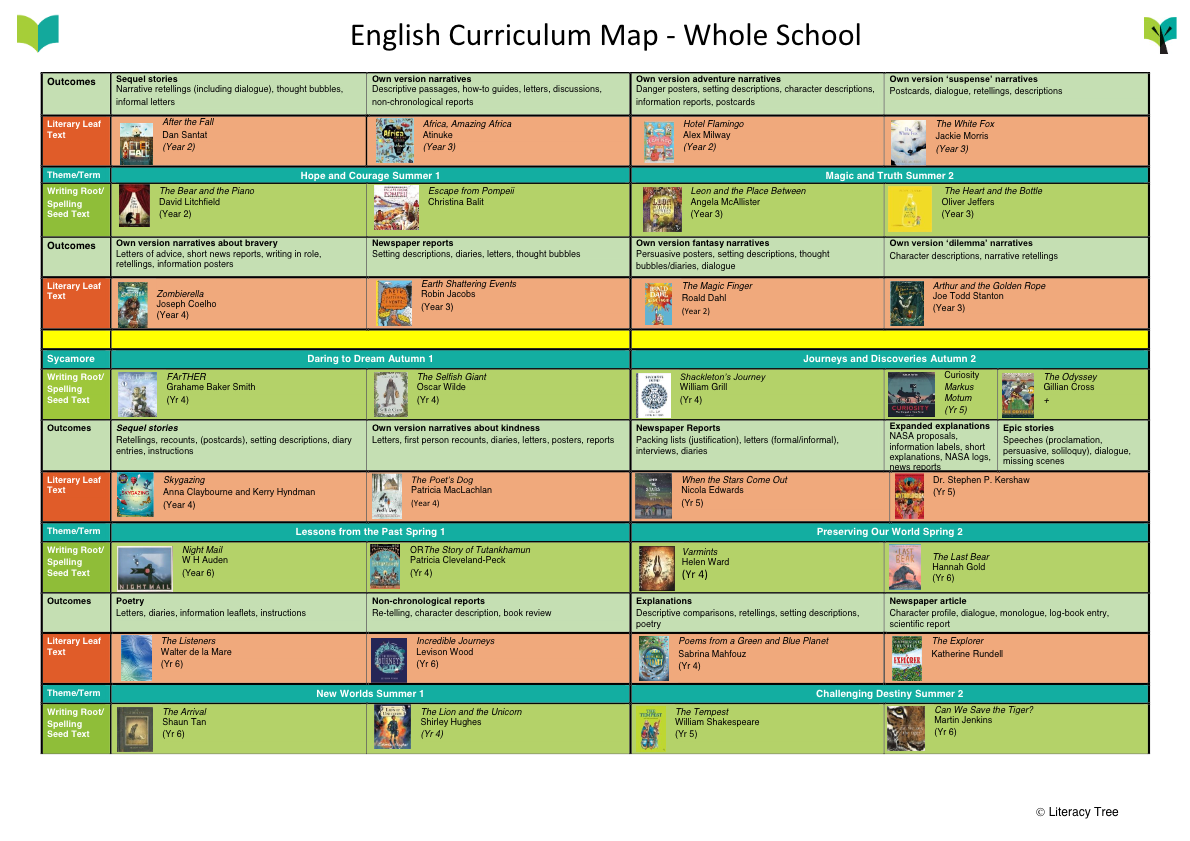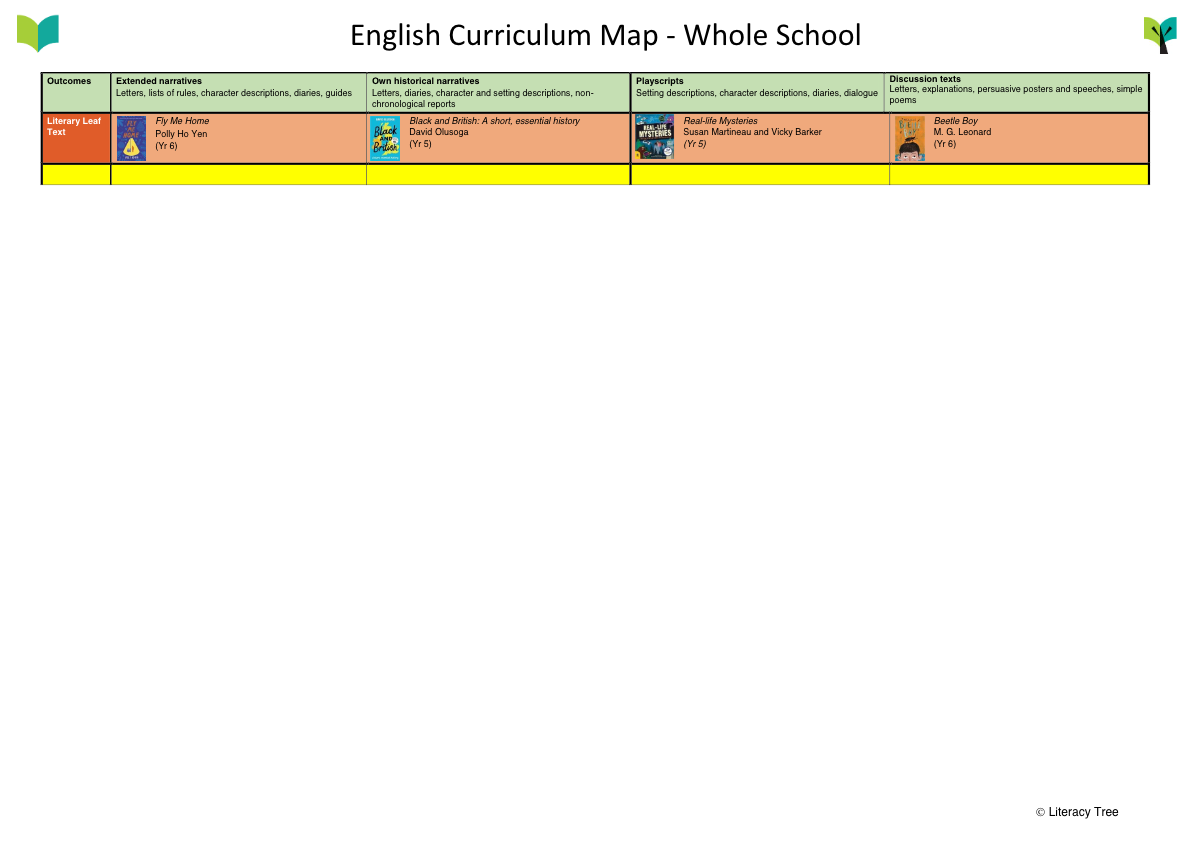"If you read good books, when you write, good books will come out of you.”
Natalie Goldberg
Intent
We believe that developing children’s skills in speaking, listening, reading and writing enables them to communicate and express themselves effectively. We understand that reading is a key driver for all learning and the curriculum intent is for all children to become enthusiastic and critical readers of a range of genres. We want our children to use their reading fluency and comprehension to not only access the whole curriculum but also to experience reading as a source of pleasure that can last a lifetime.
We believe that the written word has power and children should learn to develop their skills as writers and communicators in order to share their knowledge and creativity. Good quality writing is modelled through carefully chosen texts that reflect our subjects being taught and the diverse world we live in.
Implementation
Early reading is taught via the systematic phonics scheme Monster Phonics and is taught daily throughout Foundation Stage and Key Stage 1. Based on continual assessment during daily sessions, timely intervention is planned for those children who are working below expected levels as soon as needs are identified. (Please follow the Phonics link below to read more about our phonics offer).
Reading books are sent home regularly from Reception class through to Year 6. In EYFS and KS1, fully decodable Monster Phonics books are carefully linked to the phonic stage the children are working at. This will allow them to practise what they have covered in school and develop the fluency and confidence in comprehension that are such important aspects of being a successful reader.
The children in EYFS and KS1 also take home a Rising Stars Reading Planet book, to share with parents. This book is a sharing book as, while it does align with the phonics learning we will be covering in class in the main, there may be the occasional sound that they have not yet come across. We are sending this book to give them a rich diet of reading material, from fiction to non-fiction, that will ensure that our young readers remain keen and interested in their reading.
All children in KS1 also take part in guided reading sessions, where they use their phonic skills but also develop reading strategies which assist decoding and construct meaning. In these small groups, they enjoy reading, talking and thinking their way through a age-related text, using the Rigby Star books from Rising Stars. This enables all children, regardless of personal ability, to engage with their peers in a book aimed at children their age.
Established Readers
As Year 2 pupils show a level of mastery in their decoding skills, their reading focus shifts to the Rising Stars Reading Planets scheme. This scheme provides carefully graded reading books that will help children to develop the reading skills they need for success in school, as well as a lifelong love of reading. Pupils then continue on this graded scheme through to Year 6.
The fiction books within the scheme comprise a range of genres, from science fiction and humorous chapter books to retellings of literary classics and traditional tales. The non-fiction books feature a wide variety of text types, from how-to guides and biographies of significant individuals to information books on topics such as travel, computing, technology, the environment and art. This enables pupils to make links across their learning throughout the entire curriculum.
Children are carefully tracked through the Rising Stars scheme and after reading 3 fiction and 3 non-fiction books, they are invited to choose their own reading material from a carefully selected range of high-quality texts linked to their age-suitability and reading level. This encourages children to make choices about texts and offers increasing independence as we encourage our children to adopt a life-long love of reading. They then return to the scheme to read 6 more of the Rising Stars titles. This pattern enables staff to track children's progress through the structured programme.
Children from year 1 – year 6 complete the NFER (or statutory equivalent) reading tests termly to monitor progress and assess the children against age related expectations. Staff use the NFER tests to identify children who need additional support.
School introduces the teaching of whole-class reading comprehension from Year 2 using the “Literary Leaf” element of the Literacy Tree curriculum in daily reading lessons. Literary Leaves provide a sequence of learning outcomes based on entire books teaching reading comprehension and developing the children as critical readers. In KS2 the classes continue to use the Literary Leaf element to cover all reading domains and broaden children’s exposure to a diverse range of literature – whether this be poetry, non-fiction, a story or novel.
All children benefit from DEAL sessions (Drop Everything And Listen), where they access high-quality texts suitable for their age and can engage in age-appropriate discussion around the text and story-line, no matter their independent reading ability.
All of our children have weekly access to our school library, where there is a wide range of poetry, fiction and non-fiction books available for them to borrow. The library is also open to all children from Y3 to Y6 every lunchtime, for those who would like an opportunity to immerse themselves in a book or share a book with a friend.The children at Loxley also have access to a wide range of books including topic collections from the Warwickshire schools library service, which are changed termly.
Writing is taught through the “Writing Root” element of the Literacy Tree curriculum from Early Years Foundation Stage up to end of KS2. School uses this book-based approach to writing, as it engages children and teaches them to write in a range of genres for a clear audience and purpose. In our writing curriculum, quality texts are explored and used as models to recreate a range of writing genres. Books are carefully selected, chosen to provide a diverse range of literature and adapted to reflect our context and curriculum. This emersion in texts supports the development of vocabulary (both subject specific and creative) and the understanding of characters’ emotions and actions.
Impact
Children’s knowledge and skills develop progressively as they move through the school and are assessed and reported to parents in the end of year report.
Assessments undertaken throughout the year for reading include:
- Y1 phonics screening test
- KS1 and KS2 statutory assessment tests (SATS)
- NFER standardised reading comprehension tests
Writing is assessed by teachers, based on the Teacher Assessment Frameworks for the end of each key stage and with year specific criteria for the non-statutory test years. Writing judgements are moderated internally within school, across the federation and across the consortium.
Outcomes in the humanities, science and English books, displays and photographs all evidence the children’s cross curricular application of the key English skills.
Early Years
Communication and Language is a fundamental core skill. It is the key to enabling children to achieve and provides the strong foundations for future learning. It is promoted through a language rich ethos and environment in which adults narrate, ask questions, model thinking, provide a running commentary, repeat and extend language and give children reasons and a desire to talk.
In Early Years we foster children’s instinctive need and desire to communicate by :
• Role modelling the qualities and characteristics of an exemplary communicator
• Immersing children in a rich environment of words, sounds, rhythm, verbal and non verbal expression
• Engaging children in conversation
• Providing genuine reasons, irresistible provocations and a real purpose to listen and talk
• Valuing the different ways and means that children use to communicate.
Reading and the enjoyment of books is highly valued and promoted through daily direct teaching in the form of daily phonic sessions, listening to stories and rhymes and listening to children read. Opportunities for children to read within the provision and across the curriculum are also planned for and capitalised on.
In Early Years we develop enthusiastic emerging readers who take delight in listening to stories, enjoy reading for pleasure and know how to use text to find out information by:
• Teaching early knowledge and skills of reading
• Fostering a love of books by sharing and talking about texts
• Immersing children in sounds, words, rhythm, rhyme and song
• Modelling the pleasure and joy that books provide
• Demonstrating that text has meaning
• Showing the characteristics of a fluent reader.
Writing is valued and promoted through daily direct teaching and purposeful learning opportunities across all subjects and all areas of provision. In Early Years we develop enthusiastic emerging writers who have an enduring and positive attitude to writing, who can form letters and words and who can draw from a rich store of language and imaginative ideas by:
• Ensuring that writing tools and materials are readily available and valuing the different ways that children make marks
• Teaching the physical skills which will enable them to control and manipulate writing tools
• Teaching how phonemes are represented through graphemes
• Teaching letter formation
• Providing children with genuine reasons to write and modelling the pleasure and purpose of writing
• Immersing children in an environment of print e.g. vocabulary, sentences, books, labels
• Developing children’s vocabulary by rehearsing orally what they are going to write.
Reading for pleasure
At Loxley Primary School, we aim to ensure our children develop a love of reading and a genuine desire to read for pleasure.
Our ‘DEAL’ sessions (Drop Everything and Listen) allow pupils to relax and enjoy being read to, thus prioritising the enjoyment and pleasure which reading brings, while enabling children of all abilities to access high quality texts, high-level vocabulary and high-level questioning.
We hold regular ‘Buddy Reading’ sessions where the children read with children in different year groups, which the children absolutely love.
All of our children have weekly access to our school library, where there is a wide range of poetry, fiction and non-fiction books available for them to borrow. The library is also open to all children from Y3 to Y6 every lunchtime, for those who would like an opportunity to immerse themselves in a book or share a book with a friend.
"The children at Loxley are so enthusiastic about their reading." Volunteer
How can I help my child at home?
- Encourage a love of reading by making reading a part of daily life. Share your excitement when reading.
- Make reading a positive experience by encouraging and praising your child when they read.
- Read to your child as well as your child reading to you. Reading to your child will encourage their love of books and passion for reading.
- Record in your child’s reading record when they have read at home, this gives a sense of achievement and also helps staff to track their progress.
- Praise all types of reading: books, magazines, signs, websites etc.
We have written a leaflet to guide parents on how to read with their children at home:
For more advice, click on the link below to read the Department for Education's Top Tips in supporting your children in learning to read:
Top 10 Tips to for parents to support children to read
Vocabulary and Spelling
Each classroom has a vocabulary display to encourage children to remember and use an increasing range of language and vocabulary is explicitly taught throughout every curriculum area.
Spelling is taught discretely as a follow-on from the daily phonics sessions enjoyed by children in EYFS and KS1. Our new phonics scheme, Monster Phonics, is visible throughout the school and is supportive of those who struggle with spelling into KS2, with its colour-coding and monster characters.
Structured phonics teaching also forms an important part of helping children to develop their spelling skills. To find out more about our teaching of phonics, please follow the link below.



